Anxiety can inhibit sleep and sleep can inhibit anxiety. Your brain may keep you awake until you deal with this cycle.
What is Anxiety and Do I Have it?
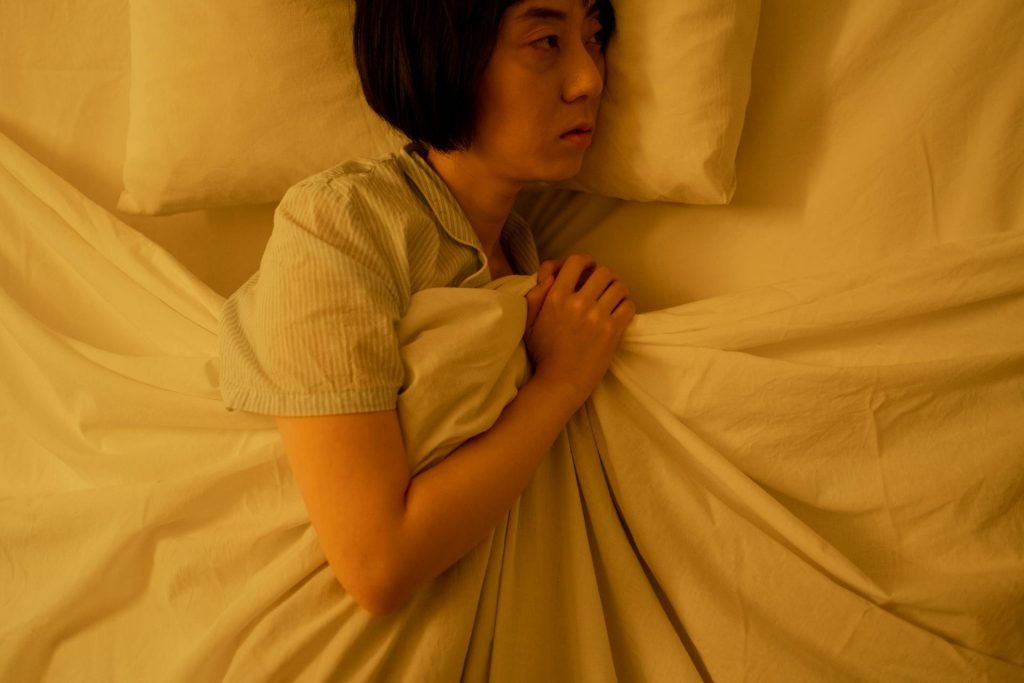
The WHO lists the following symptoms of anxiety:
- trouble concentrating or making decisions
- feeling irritable, tense or restless
- experiencing nausea or abdominal distress
- having heart palpitations
- sweating, trembling or shaking
- trouble sleeping
- having a sense of impending danger, panic or doom
What Happens in the Brain During and After Anxiety?
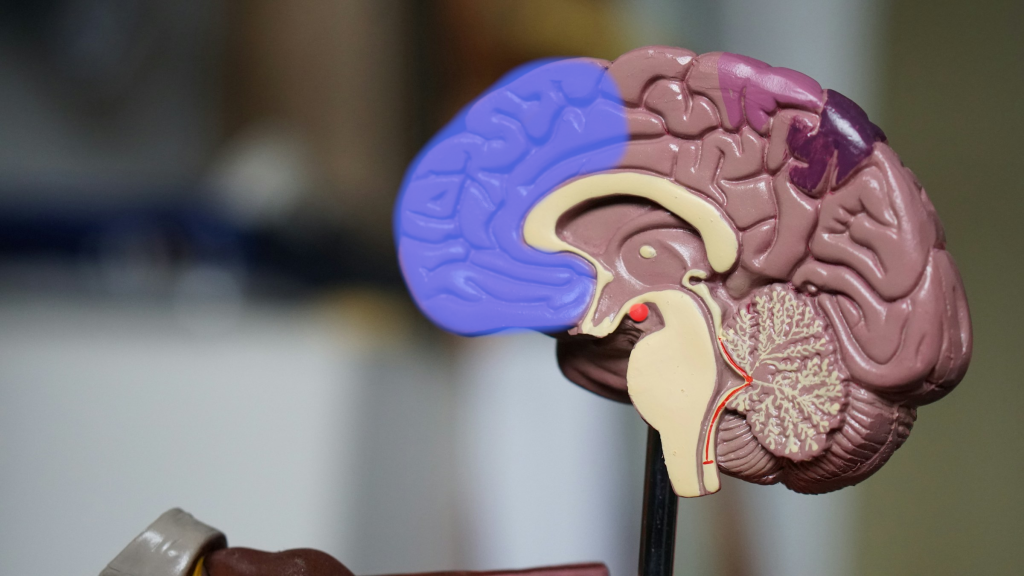
During anxiety the amygdala is significantly more active (the pea-sized area in the centre of the brain, indicated in the above image with a red dot). The Amygdala represents less than 0.3% of the brain’s mass.
Increased activity in the prefrontal cortex (12.5% of the brain’s mass, indicated in the above image by the blue area at the front of the brain) reduces activity in the amygdala.
Temporary vs. Persistent Anxiety

Everyone experiences anxiety to some extent. The frequency and intensity varies on a spectrum from person to person at various stages of life and healing. If your anxiety goes away relatively quickly and happens relatively infrequently you can consider it as “normalâ€. Even “normal†anxiety can be reduced and there is nothing wrong with doing so.
Anxiety disorders are, in contrast, persistent. Some clinicians say they “never†go away. This can be interpreted as a life-sentence. What they mean is that they haven’t gone away so far. Healing progress from anxiety disorders can vary enormously from person to person. For example, a person with a damaged prefrontal cortex might have a much more gradual journey of healing than a person a typically functioning one.
Types of Anxiety

There are a plethora of interconnected influences on anxiety, from neurological, to beliefs about oneself, others and the world, to genetic, to environmental circumstances.
Understanding the influences on your anxiety can help you come to terms with its unruly nature and help you begin to manage, or overcome it.
Formal categories include (NIMH):
- Generalised anxiety
- Panic
- Social anxiety
- Phobias
- Separation anxiety
The Sleep and Anxiety Cycle

Typically during the day our focus is occupied, we are distracted from our thoughts and emotions. The contrasting mental space that opens up at bedtime can set the stage for overwhelming thoughts and fears to become unignorable.
This can make it difficult to fall asleep and the harder it is to sleep, the more worrying and stressful it can be, making it harder to fall asleep.
An accumulated sleep debt can make it harder to function well during the day in every way and it can increase the risk of developing chronic physical health problems.
This can result in perpetual sleep disturbance, called “insomnia†and insomnia can bring on more anxiety.
How Can I get Organised to Sleep Better?
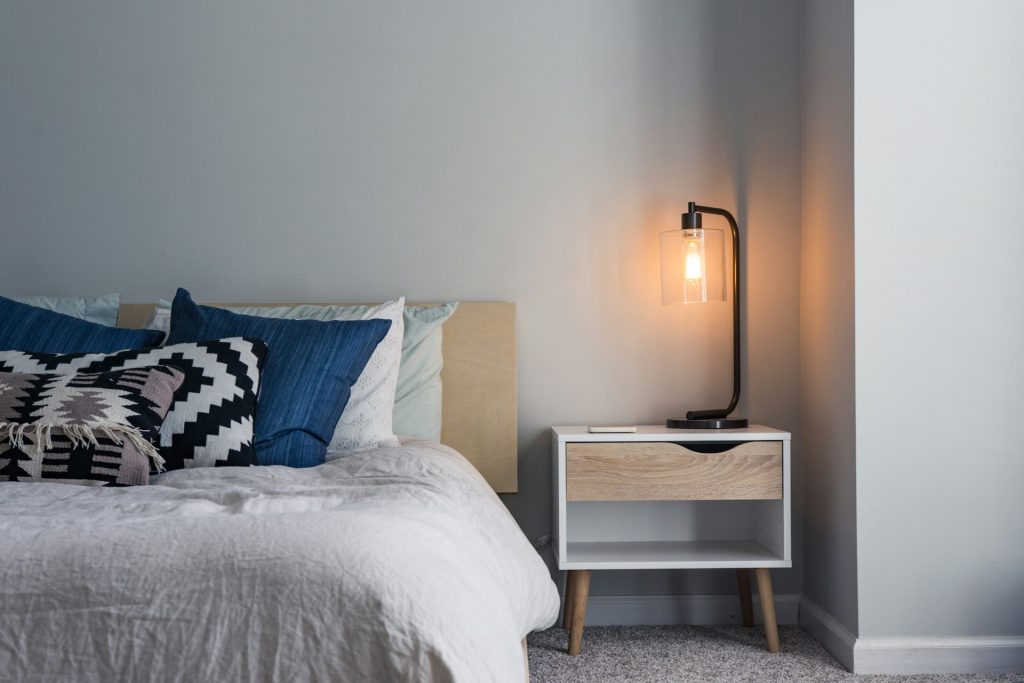
As detailed in my recent blog post: “How to Sleep Well“, you can:
- Go to bed in a dark, quiet, cool place
- Go to bed and wake up at the same time every day
- Estimate when you actually fall asleep and wake up
- Eat at least 4 hours before going to bed
- Stay hydrated throughout the day and stop drinking 2 hours before bed
- Avoid alcohol, nicotine and other stimulants in your bloodstream near bed time
- Associate sleep zone only with sleep (and sex). No screens, work, or exercise… or divide space functionality with rituals
- If you wake up for longer than 20 minutes in the night, move to another, relaxing space and do something relaxing
- 10 mins of bright light in the morning can help regulate your sleep/wake cycle
- While lying down, breathe fully in, breathe fully out and repeat at least 3 times
- Progressive muscle relaxation
- Gratitude
- Reading, or listening to a story
- White noise
- Binaural beats
- Listen to something boring
- Organise time to worry and add one solution to each worry
- Journalling
Anxiety Treatments (and Better Sleep)
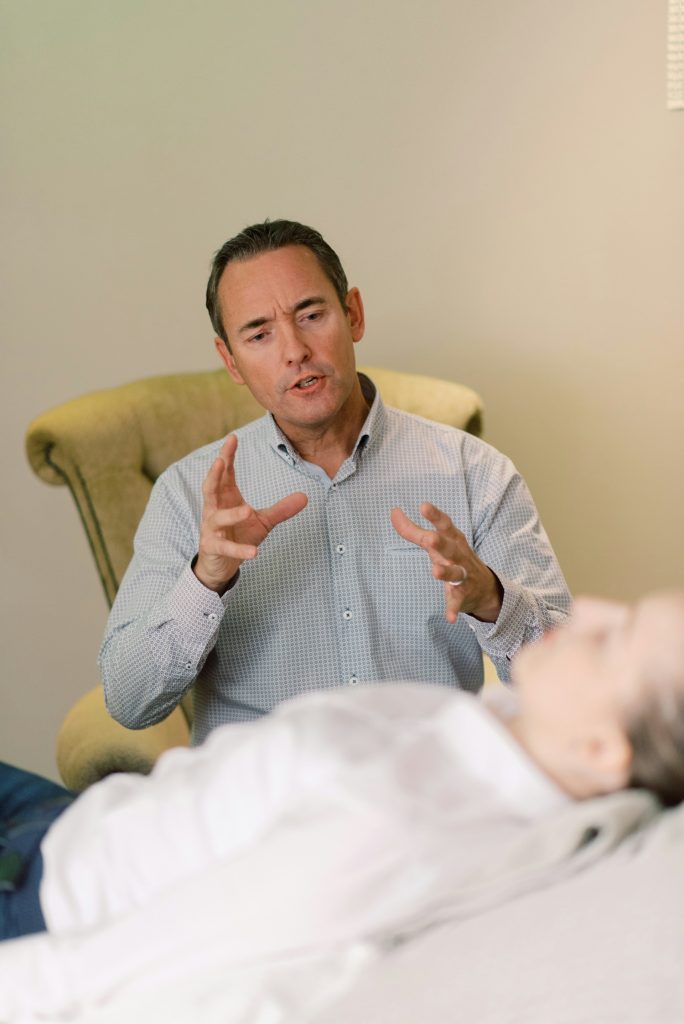
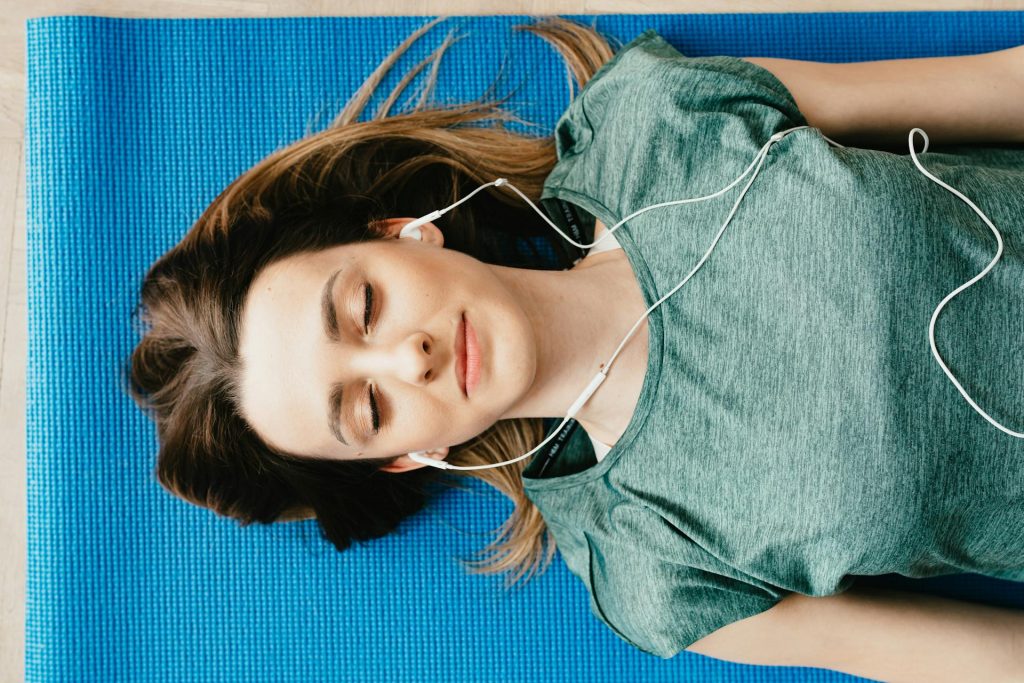
Interventions include:
- Hypnotherapy – helps to vividly clarify triggers for anxiety and “glimmers†for moving beyond anxious feelings. Helps to relax deeply
- Exposure therapy – gradually builds resilience and a sense of security in relation to anxiety-inducing triggers
- Acceptance (e.g. mindfulness) – you may not be able to control anxious thoughts and feelings directly, but by accepting their existence you can release the one thing you can control – your resistance!
- Commitment (goal setting) – following up acceptance with commitment to build habits that further demonstrate your lack of anxiety and increase your locus of control
- Medication – prescribed and managed only by clinicians
- Meditation – releases identification with anxious thoughts and feelings, increases locus of control, helps to relax deeply
Sleep and Anxiety in Summary

I would recommend getting advice/support from a medical professional, and/or qualified therapist to help you understand what my be best for you. Feel free to contact me to find out more about the Hypnotherapy services I offer.
Anxiety can be a powerful underlying issue preventing you from getting a decent night’s sleep and lack of sleep can contribute to anxiety.
It is important to address underlying anxiety in addition to organising your life and environment to sleep well.
Meditations to Help You Sleep

A Gratitude Rhyme To Send You To Sleep (FREE MEDITATION)
Sleep Meditation: Progressive Relaxation (Insight Timer Plus users)
Rhyming Sleep Meditation – Mountain Trees To Tropical Beach (Insight Timer Plus users)
Sleep Meditation – Gratitude For Your Amazing Body And Mind (Insight Timer Plus users)
Do You Want to Take the Conversation Further – Ask Questions and Contribute Answers?
Join Believe – Relieve – Conceive, my Insight Timer group.

